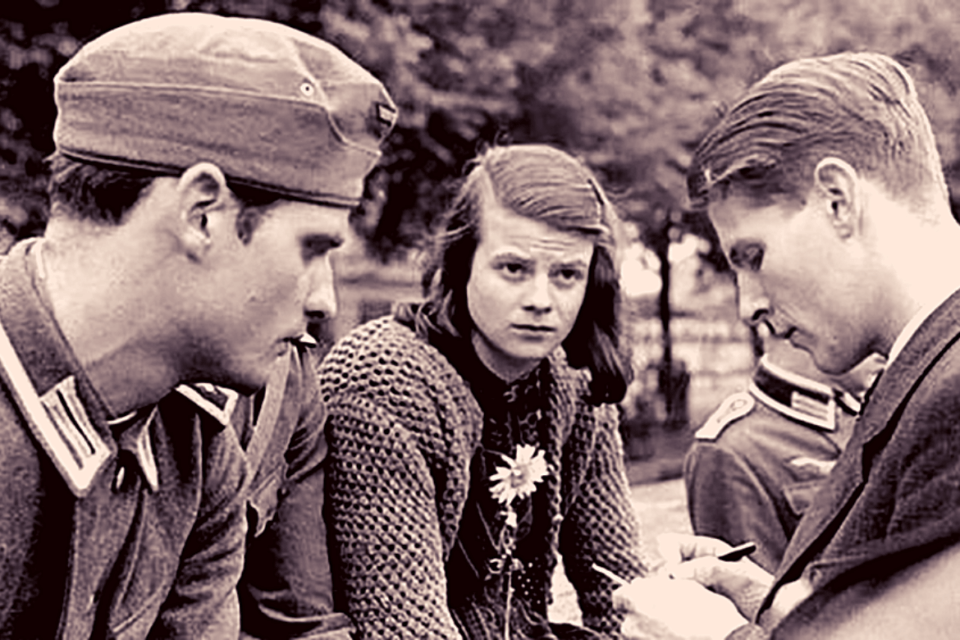“Civil disobedience” evokes a range of reactions when people hear the term. Some instinctively wince, regarding it as anti-social or subversive.
Others, like me, want to know more before we judge. What is prompting someone to engage in it? Who will be affected and how? What does the “disobedient” person hope to accomplish? Are there alternative actions that might be more effective?
One of my earliest memories from childhood was an act of civil disobedience. My family resided near Beaver Falls, Pennsylvania, about 11 miles from the Ohio border town of Negley. At the time, Pennsylvania prohibited the unauthorized introduction and sale of milk from Ohio. On many a Saturday in the late 1950s and early 1960s, my father and I would drive over to Negley and fill the back seat of our car with good, cheap milk. During the drive back home, he would caution me to “keep it covered and don’t say anything if the cops pull us over.”
For me, milk smuggling was a thrill ride. It was downright exciting to evade a stupid law while keeping an eye out for a cop who might have nothing better to do than bust a couple of notorious dairy dealers. I know my dad made a few bucks when he re-sold the milk to happy neighbors. We never had any regrets or pangs of conscience for committing this victimless crime. We were simply supporting a cause that even Abraham Lincoln may have endorsed when he said, “The best way to get a bad law repealed is to enforce it strictly.”
Government officials hate civil disobedience because it’s a disgruntled citizen’s way of thumbing his nose. If we’re unhappy with laws or policies that are stupid, destructive, corrupt, counterproductive, unconstitutional, or in other ways indefensible, they advise us to do the “democratic” thing—which means hope for the best in a future election, stand in line to be condescended to at some boring public hearing, or just shut up.
My go-to expert on the issue is not a politician or a preacher or an academic. It’s Henry David Thoreau, who famously asked, “Must the citizen ever for a moment, or in the least degree, resign his conscience to the legislator? Why has every man a conscience then? I think that we should be men first, and subjects afterward.”
If the choice is obedience or conscience, I try my best to pick conscience.
Historically, civil disobedience—the refusal to comply with a law or command of a political authority—is exceedingly common. Sometimes it is quiet and largely unnoticeable. Other times it is boisterous and public. For an act to be one of civil disobedience, it must be accompanied by principled or philosophical objections to a law or command (to exclude such acts as simple theft, fraud, and the like).
Some political theorists argue that to qualify as civil disobedience, an act must be peaceful; others allow for violence in their definition of the term. Revolutions are certainly acts of disobedience, though because they tend to be accompanied by violence they often aren’t very “civil.” In any event, the indefensible violence this week in Washington should not blind us to the very honorable history of genuine civil disobedience and its loftier motivations.
Here’s a short list of what I call “great moments in civil disobedience.” There’s no particular order other than chronological, and I wouldn’t even claim these are all among the “top” examples in history. They are, at the least, interesting food for thought. See how many of them you could endorse.
1. Defying a Pharaoh in Ancient Egypt
Chapter One of the Old Testament’s Book of Exodus provides what is probably the oldest recorded instance of civil disobedience. It dates to about 3,500 years ago. Two midwives in Egypt, named Shiphrah and Puah, disobeyed an order from the Pharaoh to kill all male Hebrew babies at birth. When they were called to account, they lied to cover their tracks. The Exodus account says their defiance pleased God, who rewarded them for it. So, anyone who says God is always on the side of the politicians must wrestle with that example, as well as the next one.
2. Sophocles’s Portrayal of Antigone
The playwright Sophocles wrote numerous literary tragedies, one of which (though fictional) tells the tale of Antigone. Creon, the King of Thebes, attempts to prevent her from giving her brother Polynices a proper burial. Antigone declared her conscience to be more important than any royal decree. She was sentenced to death for her defiance but never recanted.
3. Judea and the Slaughter of Innocents
The Book of Matthew in the New Testament reveals that when told that a Jewish Messiah had been born in Bethlehem, King Herod felt personally threatened. He ordered the Magi (the three visiting wise men) to go to the city, find the baby, and then report back to him. As we all know, the Magi did indeed go to Bethlehem where they presented Joseph, Mary, and the baby Jesus with gifts, but then they disobeyed Herod and vanished. In a fit of anger, the King then ordered the execution of all male children under two years old in the vicinity of Bethlehem. If Joseph and Mary and others who assisted them had not refused to comply, the story of Christianity would be quite different.
4. Robert the Bruce Defies a Pope
In 1317, the Pope demanded that King Robert I of Scotland (better known as Robert the Bruce) embrace a truce with the English in the First War of Scottish Independence. For his refusal to follow the Pope’s orders, Robert was excommunicated. Scottish nobles took their King’s defiance to the next level in 1320 in a letter known as the Declaration of Arbroath. It was the first time in history that an organized group of people asserted it was the duty of a King to rule by the consent of the governed and the duty of the governed to get rid of him if he didn’t. “It is not for honors or glory or wealth that we fight,” they declared, “but for freedom alone, which no good man gives up except with his life.” See Seven Centuries Since William Wallace.
5. Flushing’s Stand for Quakers
Governor Peter Stuyvesant of the Dutch colonies in North America did not like Quakers. In 1656, he commenced persecution of them and demanded local authorities participate. The following year, the citizens of Flushing (present-day Queens, New York City) drafted and signed a document known as the Flushing Remonstrance. As I recently wrote, those brave people essentially told Stuyvesant, “You are commanding us to persecute Quakers. We will not. So take your intolerance and stick it where the sun doesn’t shine.” The Governor shut down the town council of Flushing and arrested some of the document’s signers but was eventually ordered by the Dutch West India Company to rescind his policy of persecution.
6. Boston’s Smashing Tea Party
Nobody does tea parties like disgruntled colonists from Beantown. In 1773, the British parliament conferred upon the British East India Company a commercial monopoly on the tea trade. That and “taxation with representation” provoked the Sons of Liberty to stage the famous Boston Tea Party, an event organized by Samuel Adams and other American patriots. Under the cover of night, colonials boarded a British ship and tossed its cargo of tea into Boston’s harbor. Three years later, civil disobedience evolved into a Declaration of Independence and open warfare between Britain and its American colonies.
7. Robert Smalls’s Daring Escape
Robert Smalls was born a slave in South Carolina in 1839. Twenty-three years later, in a daring escape, he and other slave friends commandeered a Confederate transport ship in Charleston harbor. They sailed it right past Confederate guns and into the embrace of the Union blockade. I share this example as emblematic of the historic civil disobedience of all runaway slaves, as well as the courageous support they received from others who defied fugitive slave laws and provided them life-saving assistance. The fight for the freedom of black Americans did not end with the Civil War. Let’s not forget those who resisted Jim Crow laws, such as Rosa Parks. She committed civil disobedience when she refused to give up her bus seat in Montgomery, Alabama.
8. Everywhere, USA
From 1920 to 1933, America engaged in the nationwide, quixotic crusade against the importation, manufacture, transportation, and sale of alcoholic beverages known as Prohibition. People drank anyway. Women, who previously almost never showed up in bars, now guzzled in speakeasies and back alleys all over the country. Men built their own illegal stills and shot each other to gain market share. Crime rates soared. Juries often refused to convict obvious offenders, and at least one jury drank the evidence before declaring the accused to be innocent. When Woodrow Wilson departed the White House in January 1921, he took his stash of booze with him. His successor, Warren Harding, brought another one in. By the time the whole thing was abolished, people really needed the good, stiff drink they were imbibing all along. (See Prohibition’s Foes.)
9. Gandhi’s Famous Salt March
In British-ruled India, British companies enjoyed monopoly privileges. In 1882, the Salt Act forbade Indians from collecting or selling salt, a dietary staple. Resentment against the law and British rule in general eventually prompted Mohandas Gandhi’s famous Salt March in 1930. Huge numbers of Indians followed Gandhi in a peaceful protest for 240 miles to the Arabian Sea. More than 55,000 were arrested, but India eventually gained its independence in 1947.
10. Sophie and Hans Scholl’s Heroic Stand
Sophie Scholl and her brother Hans were students at the University of Munich when, at the height of Hitler’s power in 1942, they formed the White Rose Movement. By the thousands, they printed and distributed leaflets denouncing Nazi rule and atrocities against Jews. They never engaged in violence as they worked to undermine support for the regime. They were eventually found out, arrested, put on show trial, and beheaded. Their story is sadly but beautifully recounted in the 2005 film, Sophie Scholl: The Final Days.
11. Eastern Europe’s ‘Singing Revolution’
The Soviet Union’s “Evil Empire” unraveled in the pivotal year of 1989 but leading up to it, citizens from the Baltic states to Romania made life miserable for communist overlords. In Estonia, the “Singing Revolution” put widespread civil disobedience to music. In Poland, a flourishing underground produced massive black markets until the communist regime declared the country “ungovernable” and scheduled free elections. When Romania’s dictator Nicolae Ceausescu sent troops to arrest a pastor in Timisoara, unarmed congregants ringed the church to defend him. The soldiers refused to fire on them, and the Romanian Revolution was underway; the dictator was dead within a month.
—
Now I ask you, dear reader, where do you stand on each of these historic occasions of civil disobedience? Personally, I can say I applaud every one of them, wholeheartedly and without qualification. But then, as a former milk smuggler, maybe I’m biased.
The sermons of the American colonial preacher, Rev. Jonathan Mayhew (1720-1766), are credited as the inspiration for the Revolutionary motto, “Resistance to Tyrants is Obedience to God.”
I would vote for Mayhew in an instant—twice, if I could.
This article first appeared at ELAmerican.com on January 7, 2020, where both English and Spanish versions are available.

Lawrence W. Reed
Lawrence W. Reed is FEE’s President Emeritus, Humphreys Family Senior Fellow, and Ron Manners Global Ambassador for Liberty, having served for nearly 11 years as FEE’s president (2008-2019). He is author of the 2020 book, Was Jesus a Socialist? as well as Real Heroes: Incredible True Stories of Courage, Character, and Conviction and Excuse Me, Professor: Challenging the Myths of Progressivism. Follow on LinkedIn and Parler and Like his public figure page on Facebook. His website is www.lawrencewreed.com.
This article was originally published on FEE.org. Read the original article.




